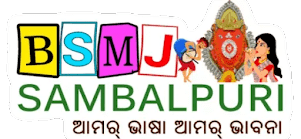India is a land of diverse cultures and vibrant festivals, each with its own unique story and significance. While the entire country celebrates the bond between brothers and sisters during festivals like Raksha Bandhan and Bhai Dooj, the state of Odisha has its own special day dedicated to this sacred relationship: Bhai Jiuntia. Celebrated with immense devotion and love, this festival is a beautiful testament to a sister's unconditional love for her brother, where she prays to Maa Durga for his longevity, prosperity, and happiness.
Two jiuntia festival celebrated on Western odisha ; Pua Jiuntia and Bhai Jiuntia. Pua Jiuntia is observed by mothers who pray to Lord Dutibahana for the long life, good health, and prosperity of their sons. In contrast, Bhai Jiuntia is celebrated by sisters who worship Goddess Durga and observe rituals for the well-being and success of their brothers.
Bhai Jiuntia Festival in Western Odisha
Bhai Jiuntia is one of the most loved traditional festivals of Western Odisha, observed with devotion during the Dussehra celebrations. The festival beautifully symbolizes the sacred bond between brothers and sisters. On this auspicious occasion, women - both married and unmarried observe a strict fast on Mahastami day and offer prayers to Goddess Durga for the long life, good health, prosperity, and happiness of their brothers.
A special feature of Bhai Jiuntia puja is the emotional connection it creates within families. Married women often visit their paternal homes during this time, so that they can celebrate the rituals together with their brothers. This tradition highlights not just the religious devotion, but also the cultural values of love, care, and family bonding that are deeply rooted in Odia society.
The Rituals and Celebrations
Bhai Jiuntia is a popular festival in Western Odisha that highlights the sacred bond between brothers and sisters. Married women return to their paternal homes to celebrate this occasion with their families. Sisters purchase a sacred thread known as Jiuntia—traditionally available in black, but now also in colorful varieties—for their brothers.
The celebration takes place on Mahastami (Durga Ashtami) during the Dussehra period. On this day, sisters observe a strict fast and prepare offerings such as fruits, sugarcane, duba grass, and flowers for Maa Durga. Traditionally, an artist paints the image of Maa Durga on a wall for the rituals, though many households also perform the puja in decorated mandaps with idols or paintings of the Goddess.
A priest is invited to conduct the rituals by reading from the Bhai Jiuntia Brata Osha book. Sisters pray with deep devotion, seeking Maa Durga’s blessings for their brothers’ long life, happiness, and prosperity.
On the following day, Maha Navami, the rituals continue. From early morning, after taking a holy bath, sisters tie the sacred Jiuntia thread on their brothers’ necks or wrists as a symbol of protection and affection. Only after this ceremony do the fasting sisters break their fast and partake in food.
This beautiful festival not only strengthens the emotional connection between siblings but also reflects the cultural richness and traditions of Western Odisha.
Conclusion: A Thread of Unconditional Love
Bhai Jiuntia is more than just a festival; it is an emotional and spiritual experience that reinforces the purest form of love between a brother and a sister. It is a day when traditions come alive, and families unite to celebrate a bond that is both playful and profound. In an era of rapid modernization, festivals like Bhai Jiuntia serve as beautiful reminders of our roots, our culture, and the timeless values of love, sacrifice, and family. It is a celebration of the sister who fasts for her brother's life and the brother who cherishes her selfless love, all bound together by a simple, sacred thread -the Jiuntia.











